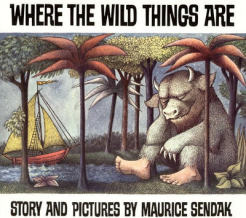I recently made the assertion that the Golden Rule, the Biblical admonition to do onto others as you would have done onto you, is an ineffective and nonsensical means by which a person should live his or her life.
I was in a conversation with a group of educational leaders at the time, and I am relatively certain that their reactions to this statement fell along one of three distinct lines:
- Matt is an idiot.
- Matt likes to say things to make people angry.
- Matt is an idiot who likes to say things that make people angry.
Suffice it to say that whatever their reaction was, no one initially agreed with me.

Yes, I may be an idiot who likes to make people angry at times, but my assertion in regards to The Golden Rule is correct. “The foundation of Christianity and most major religions” (as one person described the Golden Rule to me) possesses a flaw that makes it utterly useless.
The flaw is this:
In reality, we do not treat people as we would want to be treated, nor should we. We treat people as we perceive they want to be treated, and this is is often entirely different than the way we actually want to be treated.
For example, I know that when my wife has a problem, she would like me to listen intently and empathize with her plight. She is like most women in this respect. She wants to be heard. She wants to know that I am on her side. She wants to believe that I understand how she feels.
She may ultimately want me to help her solve the problem, but I know that any proposed solution is secondary and possibly not required at all. Sometimes a problem has no solution, yet she will still want to talk about it with me. As long as she knows that I am listening and I care, she is content with my response.
My response to a problem is entirely different. If I have chosen to discuss a problem with my wife or one of my friends, it is because I have reached the point where I need help in finding a solution. If a problem has no solution, I am unlikely to ever mention it to anyone.
Many men handle problems similarly. If a male friend calls me to discuss a problem, I know that he is not looking to be heard. He is not seeking empathy. He is calling me with the expectation that I will offer an immediate array of possible solutions. In most cases, I do not need to empathize or even care about my friend’s problem. I need not think that the problem is worthy of discussion, just as long as I have a solution to offer.
If I were to apply The Golden Rule to the way in which I discuss my wife’s problems with her, my response would not be well received. In this case, I cannot treat my wife as I would want to be treated, because our needs, like the needs of most men and women, are entirely divergent.
Situations like this happen all the time. In fact, if The Golden Rule was actually a valid moral code, human beings would be required to treat every person in their lives in only one way:
The way they would want to be treated.
Allowances would no longer need to be made for differences in personality, sensitivity, sex, age or personal background. In a world in which we treat people in a way that we would want to be treated, everyone would be equal in our eyes in every respect.
Everyone would be us.
Admittedly, it would make for a significantly simpler world. The need for nuance, grace and sensitivity would be gone. Every decision would be based solely upon our own personal preference. You would simply ask yourself what you might want in a given situation and make that your modus operandi, regardless of who you were dealing with or the context of the situation.
For example, I like to be spoken to in a direct and honest manner. My closest friends know this and are able to say things to me that might hurt the feelings of others. But this is how I prefer to be treated. I find this method most effective for me.
In a world that demanded adherence to The Golden Rule, I would be required to speak to people similarly, even if I knew that doing so would hurt some people’s feelings and cause them to feel uncomfortable around me.
I am quite certain of this because there was a time in my life when I practiced The Golden Rule in this regard, and it resulted in a great deal of animosity toward me. I was stupid and arrogant and lacking in nuance, and the results were not good.
The Golden Rule caused me a lot of trouble in my youth.
The actual Golden Rule should read like this:
Treat others in a way that they would want to be treated.
Thankfully, this is how most of us actually live our lives, even as we espouse our belief in this flawed, archaic rule.








